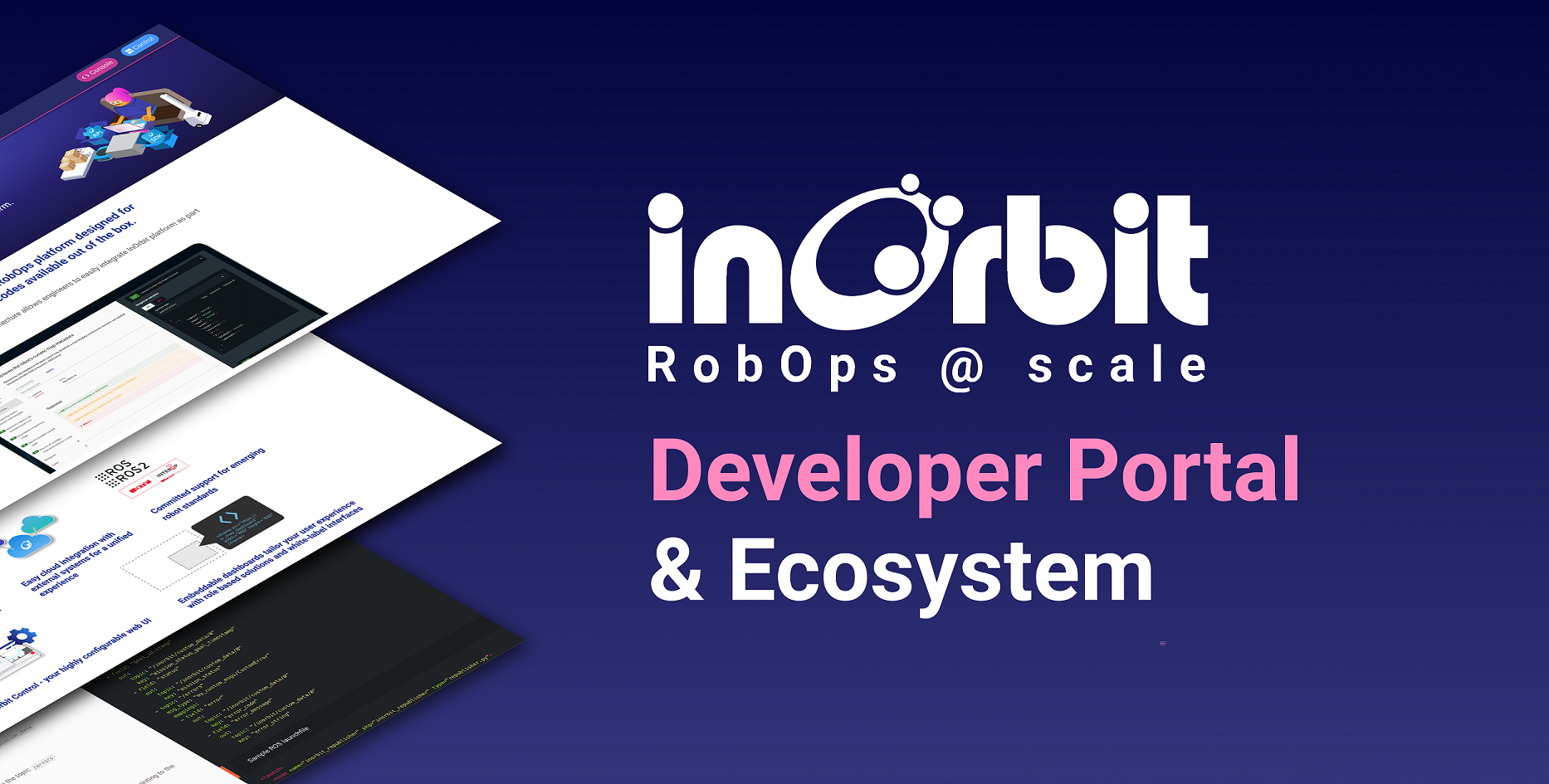InOrbit Launches Developer Portal, Expands RobOps Ecosystem
Centralized toolbox includes SDKs, APIs and ready-to-use code for roboticists looking to integrate RobOps development into their robot platforms

MOUNTAIN VIEW, Calif. – InOrbit, the leading provider of cloud-based robot operations (RobOps) software, today announced the launch of its Developer Portal, a rich collection of development tools to help roboticists and software engineers build scalable robotics solutions. The portal is available for free at developer.inorbit.ai.
The Developer Portal is an online toolbox for software builders, including application programming interface (API) endpoints, software development kits (SDK), and no-code embeds to augment companies’ branded experiences. In addition, the portal includes links to a growing number of open-source contributions, such as support for interoperability standards and sample integration for ChatOps.
Developers can get started right away, leveraging the Developer Portal along with the free-of-charge infrastructure InOrbit recently announced as part of the InOrbit Free Edition. Used together, roboticists developing the next-generation of robots can quickly accelerate their development rather than starting from scratch.
“As engineers ourselves, we always want to create tools that solve problems and can be incorporated as part of the robotics development workflow,” said Julian Cerruti, CTO and co-founder of InOrbit. “With the Developer Portal and our Free Edition, we’re making it easier for developers to find the right components and get started quickly, freeing up time to focus on the differentiating features that make their robots unique.”
The RobOps movement is now an Ecosystem
InOrbit also announced the launch of the InOrbit Ecosystem, a growing group of companies with complementary products and services. Together with InOrbit, these companies can offer the best solution to address various specialized needs across different verticals.
“InOrbit’s data platform can take care of common RobOps needs for most robots in the real world,” said Florian Pestoni, CEO and co-founder of InOrbit. “At the same time, we know that each robot and deployment is unique. Now developers and robot operators have access to the tools they need to connect their robots to the cloud -- and to everything else. Even better, we are enabling other companies to easily integrate with our platform to offer a range of solutions, including IoT sensor data, spatial intelligence, advanced video and routing algorithms.”
At launch, ecosystem members include Qualcomm Technologies, Inc., 634 AI, Digital Keystone, Ekumen, Mapped, Meili Robots, Next Generation Robotics, OLogic, WiBotic, and Zan Compute. Additional collaborations are in the works.
“As a single interface into enterprise robot operations, InOrbit provides the tools needed to identify and address problems, analyze and optimize processes, and increase fleet efficiency over time,” said Ben Waters, CEO and co-founder of WiBotic. “Like InOrbit, WiBotic’s autonomous charging solutions focus on keeping robots running. As a universal solution, WiBotic hardware can deliver energy when and where it’s needed – through both wired and wireless charging technology.”
“InOrbit has unparalleled ability to monitor the position and status of robots on the warehouse floor,” said David Pepper, CEO of Next Generation Robotics. “Combined with NGR’s cross-platform fleet orchestration software, customers will have all they need to get tasks done quickly and efficiently, no matter the number or type of robots in use.”
More details about the growing InOrbit Ecosystem can be found at inorbit.ai/ecosystem. For more information on the Developer Portal and InOrbit’s complete line of RobOps solutions, please visit www.inorbit.ai.
For InOrbit and Developer Portal media assets, click here.
To learn more about InOrbit’s Developer Portal, Ecosystem or connect with InOrbit to schedule an interview please contact our Media and Marketing team:
marketing@inorbit.ai